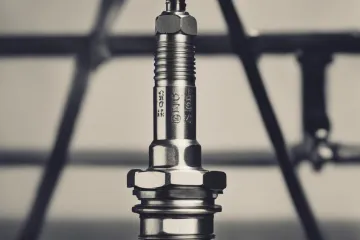How Long Does It Take to Become an Auto Mechanic

Receiving a college degree is not the only way to build a successful career. But most people are programmed to think in the conventional way, and this type of thought is ingrained in their belief system.
If you are a high school student, you are often asked about your plan on receiving a college degree. And if you say that you are not going to enroll in a four-year university course, chances are that you will have to stomach a negative comment. But you should not take such a comment seriously.
Receiving a four-year degree may or may not be the right choice for you. It depends on who you are and what you wish to become in life. But, to succeed in the 21st century, it may be necessary to abandon the traditional way of thinking.
Technical training and trade schools can help you become an automotive technician. But how long does it take to become an auto mechanic? In this post, we will try to answer this question.
Trade school is not the last resort
Automobiles are upgrading every year, and newer versions of them are very complex. Vehicles with advanced technologies have many computers onboard, and all of them can “talk” to each other. Today’s vehicles use many monitoring systems and sensor arrays.
So this industry needs very bright technicians who can fathom how newer versions of automobiles work. Today’s automotive mechanics and technicians are highly paid and highly respected. They not only conduct traditional repairs like spark plugs and carburetors but also repair the complex systems of the 21st century vehicles.
This advanced technology requires highly intelligent people and special diagnostic equipment. To be successful, automotive technicians have to use both their hands and their heads.
You do not need a four-year degree if you want to start your career as an entry-level automotive technician. And you do not get stuck with an unpaid internship; you start earning right away. But how long does it take to become an auto mechanic? We will address this question soon.
Qualified graduates who do not like unpaid internships choose tuition reimbursement programs. These days, qualified entry-level technicians are highly in demand. What is the main advantage of these programs? Well, your employer will repay your tuition fees after your graduation.
Duration of a typical automotive program
So, how long does it take to become an auto mechanic? According to Universal Technical Institute, a site that teaches automotive engineering, you need 17 three-week courses to become an automotive technician. Now we are going to outline the steps and describe what you are taught in each step.
Weeks 1-3
In the very beginning you are introduced to engines. You learn about engine components, engine configurations and safety. You learn about the functions of an engine by dismantling the components. This phase will also teach you about cooling systems and the operation of lubricants.
Weeks 4-6
In the second phase you are introduced to powertrains. It basically involves learning how power is transferred to the wheels. They will teach you about various driveline configurations. You will also learn about rear axel components, driveshafts and manual transmission.
Weeks 7-9
In these three weeks you learn about automotive physical science. This course teaches you about the systems and components of an automobile. You will be taught about suspension theory, tires, and various configurations. This section also includes understanding steering systems.
Weeks 10-12
This section teaches you the principles of automotive physical science. It involves electrical fundamentals. You have to learn about electrical circuits, charging systems and alternators. In this phase you are also introduced to different specials tool that are used to repair automobiles.
Weeks 13-15
How long does it take to become an auto mechanic? It depends on how fast you learn, but in weeks 13-15, you are typically taught about electrical applications. It involves analog and digital signals, waveforms, and diagnosing different components.
Weeks 16-18
In this phase you are taught about different technology principles, especially ventilation and air conditioning systems. The course also involves understanding AC recycling machines, depressurization and re-pressurization.
Weeks 19-21
In weeks 19-21 you learn about manual transmission. In this phase you are taught about Limited Slip Differentials and integral and removable drive and rear axel. Repairing longitudinal transmissions, clutch systems and 4WD transfer boxes are also included in this section.
Weeks 22-24
Then the course teaches you automatic transmissions. In these three weeks you have to focus on transmission sensors, valve body torque converters and hydraulic systems. You learn disassembling, testing and diagnosing various components.
Weeks 25-27
In these 3 weeks you will gain knowledge about braking systems. The focus will be on the functions and repairing of power systems. You will also gain knowledge about power braking systems, master cylinders, system bleeding procedures and brake system hydraulics.
Weeks 28-30
Here also you learn about suspension and steering systems. This course is just an expansion of the undercar course. You learn more about different suspension systems and steering mechanism. In modern vehicles, these systems are highly complex. How long does it take to become an auto mechanic? It depends on how quickly you can grasp these concepts.
Weeks 31-36
In these 6 weeks, you will learn about the drivability of automobiles. Once you have gained some knowledge about engine management systems, you will learn about turbocharging, supercharging, variable camshaft and direct injection. You will also learn about the rules of emission control systems.
Weeks 37-39
In this phase, students are taught about the procedures of engine rebuilding. You will be taught how to disassemble measure and reassemble domestic performance engines. The course also focuses on the techniques and practices of engine building.
Weeks 40-45
In these six weeks, trainees are taught about the power and performance of automobiles. This phase includes understanding of dynamometer testing and other such things. Emphasis is also given on component selection and tuning. Students also learn about performance-oriented equipment and vehicle modifications.
Weeks 46-51
In the last six weeks of the course you will learn about advanced electrical applications and hybrid technology. You will learn various methods of servicing hybrid vehicles. Trainers also put a lot of focus on alternative fuels and electronic test equipment.
If you are really interested in becoming an auto mechanic, you may still ask: how long does it take to become an auto mechanic? Now you know the answer at least partly. It depends on several factors, including your passion for the profession. If you are on the right track, you will gradually become a successful automotive technician.













No Comment